- Home
- Diana Palmer
Long, Tall Texan Legacy Page 8
Long, Tall Texan Legacy Read online
Page 8
She only smiled. She was glad that she’d stood up to the Comanches. She wondered if they’d ever have wanted to work for them if she’d run away and hid.
* * *
THE TEEPEE THE COMANCHES built for the couple was remarkably warm and clean. No sooner was it up than Ellen built a small cooking fire near its center and put on a black iron pot of stew to cook. Red Wing had already taught her how to turn the pole in the center to work the flap for letting smoke out while she cooked. She also learned that she was born to be a rancher’s wife. Every chore came easily to her. She wasn’t afraid of hard work, and she fell more in love with her roguish, unconventional husband every day. She did still worry about her grandmother coming down to rescue her. She had no intention of being carted off back East, where she would have to dress and act with decorum.
She sat the children down in the cabin one evening after she and the other women and older girls had cleared away the precious iron cookware and swished the tin plates and few utensils in a basin of soapy water and wiped them with a dishrag.
“What are we going to do?” one of Juana’s daughters asked.
Ellen produced the books that the retired Victoria schoolteacher had given her, handling them like treasure.
“I’m going to teach you children to read and write,” she told them.
Mary and Juana stood quietly by, so still that Ellen was made uneasy.
“Is it all right?” she asked the adults, concerned, because she’d worried that they might think education superfluous.
“Nobody ever taught me to write my name,” Mary said. “Nor Isaac, either. We can only make an x. Could you teach me to write? And read?”
“Me, too!” Juana exclaimed.
Their husbands looked as if they might bite their tongues off trying not to ask if they could learn, too, but they managed.
“You can all gather around and we’ll let the older folk help show the young ones how to do it,” she said, managing a way to spare the pride of the men in the process of teaching them as well.
“Yes, we can show them, señora,” Luis said brightly.
“Sure we can,” Isaac added with a big grin.
“Gather around, then.” She opened the book with a huge smile and began the first lesson.
* * *
SHE LOOKED DOWN AT the dungarees she was wearing with boots that John had bought her. She had on one of his big checked long-sleeved shirts, with the sleeves rolled up, and her hair was caught in a ponytail down her back. She checked the stew in her black cooking pot and wiped sweat from her brow with a weary hand. The Comanches had gathered pine straw from under the short-leafed pines in the thicket to make beds, which Ellen covered with quilts she and the other women had made in their precious free time. It wasn’t a mansion, but she and John would have privacy for the first time that night. She thought of the prospect with joy and a certain amount of trepidation. Like most young women of her generation, her upbringing had been very strict and moral. She knew almost nothing of what happened between married people in the dark. What she didn’t know made her nervous.
The sudden noise outside penetrated her thoughts. She heard voices, one raised and strident, and she ran out of the teepee and to the cabin to discover a well-dressed, elderly woman with two young men in immaculate suits exchanging heated words with Juana, who couldn’t follow a thing they were saying. Mary was out with the others collecting more wood for the fireplace in the small cabin.
“Do you understand me?” the old woman was shouting. “I am looking for Ellen Colby!”
“Grandmother!” Ellen exclaimed when she recognized the woman.
Her grandmother Amelia Greene was standing beside the buggy beside two tall young men whom Ellen recognized as her cousins.
Amelia turned stiffly, her whole expression one of utter disapproval when she saw the way her granddaughter was dressed.
“Camellia Ellen Colby!” she exclaimed. “What has become of you!”
“Now, Grandmother,” Ellen said gently, “you can’t expect a pioneer wife to dress and act as a lady in a drawing room.”
The older woman was not convinced. She was bristling with indignation. “You will get your things together and come home with me right away!” she demanded. “I am not leaving you here in the dirt with these peasants!”
Ellen’s demeanor changed at once from one of welcome and uneasiness to one of pure outrage. She stuck both hands on her slender hips and glared at her grandmother.
“How dare you call my friends peasants!” she exclaimed furiously. She went to stand beside Juana. “Juana’s husband Luis, and Mary’s husband Isaac, are our partners in this ranching enterprise. They are no one’s servants!”
Mary came to stand beside her as well, and the children gathered around them. While the old woman and her companions were getting over that shock, John came striding up, with his gunbelt on, accompanied by Luis and Isaac and the two Comanche men.
Amelia Greene screeched loudly and jumped behind the tallest of her grandchildren.
“How much you want for old woman?” Red Wing asked deliberately, pointing at Amelia.
Amelia looked near to fainting.
Ellen laughed helplessly. “He’s not serious,” she assured her grandmother.
“I should hope not!” the tallest of her cousins muttered, glaring at him. “The very idea! Why do you allow Indians here?”
“These are our horse wranglers,” Ellen said pointedly. “Red Wing and Thunder. And those are our partners, Luis Rodriguez and Isaac Brown. Gentlemen, my grandmother, Amelia Greene of New York City.”
Nobody spoke.
John came forward to slide his arm around Ellen’s waist. He was furious at the way her relatives were treating the people nearby.
“Hospitality is almost a religion to us out here in Texas,” John drawled, although his green eyes were flashing like green diamonds. “But as you may notice, we have no facilities to accommodate visitors yet.”
“You cannot expect that we would want to stay?” the shorter cousin asked indignantly. “Come, Grandmother, let us go back to town. Ellen is lost to us. Surely you can see that?”
Ellen glared at him. “Five years from now, cousin, you will not recognize this place. A lot of hard work is going to turn it into a showplace….”
“Of mongrels!” her grandmother said haughtily.
“I’m sorry you feel that way, but I find your company equally taxing,” Ellen shot back. “Now will you all please leave? I have chores, as do the others. Unlike you, I do not sit in the parlor waiting for other people to fetch and carry at my instructions.”
The old woman glowered. “Very well, then, live out here in the wilds with savages! I only came to try and save you from a life of drudgery!”
“Pickles and bread,” Ellen retorted haughtily. “You came hoping to entice me back into household slavery. Until I escaped you and came west with my father, I was your unpaid maidservant for most of my life.”
“What else are you fit for?” her grandmother demanded. “You have no looks, no talent, no…!”
“She is lovely,” John interrupted. “Gentle and kind and brave. She is no one’s servant here, and she has freedom of a sort you will never know.”
The old woman’s eyes were poisonously intent. “She will die of hard work here, for certain!”
“On her own land, making her own empire,” John replied tersely. “The road is that way,” he added, pointing.
She tossed her head and sashayed back to the buggy, to be helped in by her grandsons, one of whom gave Ellen a wicked grin before he climbed in and took the reins.
“Drive on,” Amelia said curtly. “We have no kinfolk here!”
“Truer words were never spoken,” Ellen said sweetly. “Do have a safe trip back to town. Except for cattle thieves from Mexico and the bordering counties of Texas, and bank robbers, there should be nothing dangerous in your path. But I would drive very fast, if I were you!”
There were muttered, exci
ted exchanges of conversation in the buggy before the tallest grandson used the buggy whip and the small vehicle raced forward down the dusty dirt road in the general direction of town.
“You wicked girl!” John exclaimed on a burst of laughter, hugging her close.
“So much for my rescuers,” she murmured contentedly, hugging him back. “Now we can get back to work!”
* * *
THAT NIGHT, Ellen and John spent their first night alone, without prying eyes or ears, in the teepee the Comanches had provided for them.
“I am a little nervous,” she confessed when John had put out the small fire and they were together in the darkness.
“That will not last,” he promised, drawing her close. “We are both young, and we have all the years ahead to become more accustomed to each other. All you must remember is that I care more for you than for any woman I have ever known. You are my most prized treasure. I love you. I will spend my life trying to make you happy.”
“John!” She pressed close to him and raised her face. “I will do the same. I adore you!”
He bent and kissed her softly, and then not so softly. Tender caresses gave way to stormy, devouring kisses. They sank to the makeshift mattress and there, locked tight in each others’ arms, they gave way to the smoldering passion that had grown between them for long weeks. At first she was inhibited, but he was skillful and slow and tender. Very soon, her passion rose to meet his. The sharpness of passion was new between them, and as it grew, they became playful together. They laughed, and then the laughing stopped as they tasted the first sweet sting of mutual delight in the soft, enveloping darkness.
When Ellen finally fell asleep in John’s arms, she thought that there had never been a happier bride in the history of Texas.
Chapter Six
ELLEN’S GRANDMOTHER and cousins went back East. Her father came regularly to visit them in their teepee, finding it touching and amusing at once that they were happy with so little. He even offered to loan them enough to build a bigger cabin, but they refused politely. All they wanted, Ellen reminded him, was a spur of the railroad.
That, too, was finally finished. John loaded his beef cattle into the cattle cars bound for the stockyards of the Midwest. The residents of the ranch settled into hard work and camaraderie, and all their efforts eventually resulted in increasing prosperity.
The first thing they did with their newfound funds was to add to the cattle herd. The second was to build individual cabins for the Rodriguez and Brown clans, replacing the teepees the Comanches had built for them. The Comanches, offered a handsome log cabin of their own, declined abruptly, although politely. They could never understand the white man’s interest in a stationary house that had to be cleaned constantly, when it was so much easier to move the teepee to a clean spot! However, John and Ellen continued to live in their own teepee for the time being, as well, to save money.
A barn was the next project. As in all young communities, a barbecue and a quilting bee were arranged along with a barnraising. All the strong young men of the area turned out and the resulting barn and corral were quick fruit of their efforts. Other ranches were springing up around the 3J Ranch, although not as large and certainly not with the number of cattle and horses that John’s now boasted.
The railroad spur, when it came, brought instant prosperity to the area it served. It grew and prospered even as some smaller towns in the area became ghost towns. Local citizens decided that they needed a name for their small town, which had actually grown up around the ranch itself even before the railroad came. They decided to call it Jacobsville, for John Jacobs, despite his protests. His hard work and lack of prejudice had made him good friends and dangerous enemies in the surrounding area. But when cattle were rustled and houses robbed, his was never among them. Bandits from over the border made a wide route around the ranch.
As the cattle herd grew and its refinement continued, the demand for Jacobs’s beef grew as well. John bought other properties to go along with his own, along with barbed wire to fence in his ranges. He hired on new men as well, black drovers as well as Mexican and white. There was even a Chinese drover who had heard of the Jacobs ranch far away in Arizona and had come to it looking for a job. Each new addition to the ranch workforce was placed under the orders of either Luis or Isaac, and the number of outbuildings and line camps grew steadily.
Ellen worked right alongside the other women, adding new women to her dressmaking enterprise, until she had enough workers and enough stock to open a dress shop in their new town of Jacobsville. Mary and Juana took turns as proprietors while Ellen confined herself to sewing chair and sofa covers for the furniture in the new white clapboard house John had built her. She and her handsome husband grew closer by the day, but one thing was still missing from her happiness. Their marriage was entering into its second year with no hope of a child.
John never spoke of it, but Ellen knew he wanted children. So did she. It was a curious thing that their passion for each other was ever growing, but bore no fruit. Still, they had a good marriage and Ellen was happier than she ever dreamed of being.
In the second year of their marriage, his sister Jeanette came west on the train with her husband and four children to visit. Only then did Ellen learn the extent of the tragedy that had sent John west in the first place. The attack by the Union troops had mistakenly been aimed at the sharecroppers’ cabin John and his mother and sisters occupied, instead of the house where the owner’s vicious overseer lived. The house had caught fire and John’s mother and elder sister had burned to death. John had not been able to save them. The attack had been meant for the overseer who had beaten Isaac and Mary’s son to death, along with many other slaves. John was told, afterward, but his grief was so sweeping that he hardly understood what was said to him. His sister made sure that he did know. The cavalry officer had apologized to her, and given her money for the trip to North Carolina, unbeknownst to John. His sister obviously adored him, and he was a doting uncle to her children.
She understood John’s dark moods better after that, the times when he wanted to be alone, when he went hunting and never brought any wild game home with him. Ellen and Jeanette became close almost at once, and wrote to each other regularly even when Jeanette and her family went home to North Carolina.
Deputy Marshal James Graham had come by unexpectedly and mentioned to John that he hadn’t been able to find the two Comanche fugitives who were supposed to have shot a white man over a horse. It turned out that the white man had cheated the Comanches and had later been accused of cheating several army officers in horse trading deals. He was arrested, tried and sent to prison. So, Graham told John, the Comanches weren’t in trouble anymore. Just in case John ever came across them.
Thunder and Red Wing, told of the white man’s arrest, worked a few months longer for John and then headed north with their wages. Ellen was sad to see them go, but Thunder had promised that they would meet again one day.
The Maxwells came to visit often from Scotland, staying in the beautiful white Victorian house John later built for his beloved wife. They gave the couple the benefit of their extensive experience of horses, and John branched out into raising thoroughbreds. Eventually a thoroughbred of the lineage from his ranch would win the Triple Crown.
* * *
YEARS PASSED with each year bringing new prosperity to the 3J Ranch. One May morning, Ellen unexpectedly fainted at a church social. John carried her to the office of their new doctor, who had moved in just down the boardwalk from the new restaurant and hotel.
The doctor examined her and, when John had been invited into the examination room, grinned at him. “You are to be a father, young man,” he said. “Congratulations!”
John looked at Ellen as if she’d just solved the great mystery of life. He lifted her clear of the floor and kissed her with aching tenderness. His happiness was complete, now.
Almost immediately, he began to worry about labor. He remembered when Luis’s and Isaac’s
wives had given birth, and he turned pale.
The doctor patted him on the back. “You’ll survive the birth of your children, Mr. Jacobs, we all do. Yes, even me. I have had to deliver mine. Something, I daresay, you will be spared!”
John laughed with relief, thanked the doctor for his perception, and kissed Ellen again.
She bore him three sons and two daughters in the years that followed, although only two of their children, their son Bass and their daughter Rose Ellen, lived to adulthood. The family grew and prospered in Jacobsville. Later, the entire county, Jacobs, was named for John as well. He diversified his holdings into mining and real estate and banking. He was the first in south Texas to try new techniques in cattle ranching and to use mechanization to improve his land.
The Brown family produced six children in all. Their youngest, Caleb, would move to Chicago and become a famous trial lawyer. His son would be elected to the United States Senate.
The Rodriguez family produced ten children. One of their sons became a Texas Ranger, beginning a family tradition that lived on through subsequent generations.
John Jacobs founded the first bank in Jacobs County, along with the first dry goods store. He worked hard at breeding good cattle, but he made his fortune in the terrible blizzard of 1885-86 in which so many cattlemen lost their shirts. He endowed a college and an orphanage, and, always active in local politics, he was elected to the U.S. Senate at the age of fifty. He and Ellen never parted for fifty years.
His son, Bass Jacobs, married twice. By his young second wife, he had a son, Bass, Jr., and a daughter, Violet Ellen. Bass Jacobs, Jr., was the last of the Jacobs family to own land in Jacobs County. The 3J Ranch was sold after his death. His son, Ty, born in 1955, eventually moved to Arizona and married and settled there. His daughter, Shelby, born in 1961, stayed in Jacobsville and married a local man, Justin Ballenger. They produced three sons. One of them was named John Jackson Jacobs Ballenger, so that the founding father of Shelby’s family name would live on in memory.

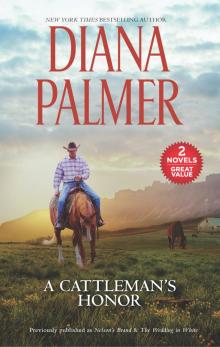 A Cattleman's Honor
A Cattleman's Honor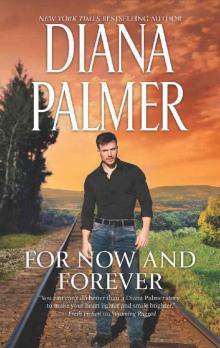 For Now and Forever
For Now and Forever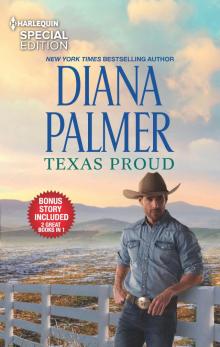 Texas Proud and Circle of Gold
Texas Proud and Circle of Gold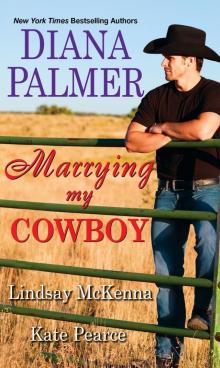 Marrying My Cowboy
Marrying My Cowboy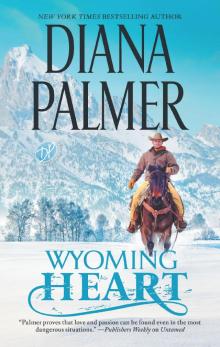 Wyoming Heart
Wyoming Heart Christmas Kisses with My Cowboy
Christmas Kisses with My Cowboy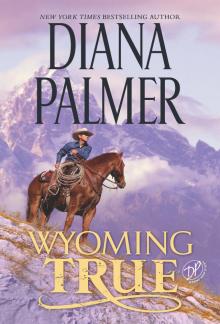 Wyoming True
Wyoming True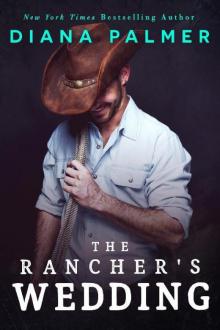 The Rancher's Wedding
The Rancher's Wedding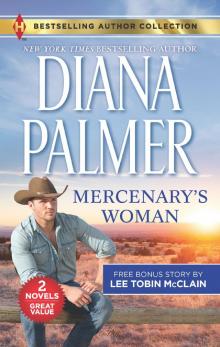 Mercenary's Woman ; Outlawed!
Mercenary's Woman ; Outlawed!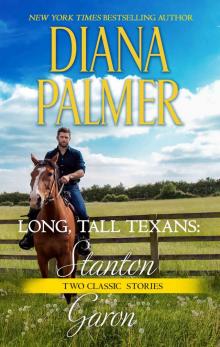 Long, Tall Texans: Stanton ; Long, Tall Texans: Garon
Long, Tall Texans: Stanton ; Long, Tall Texans: Garon Lawless
Lawless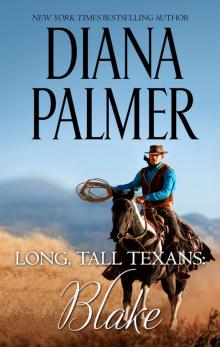 Blake
Blake Escapade
Escapade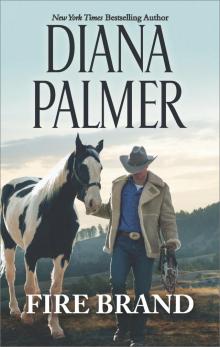 Fire Brand
Fire Brand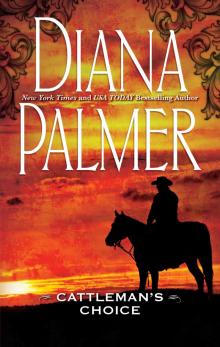 Cattleman's Choice
Cattleman's Choice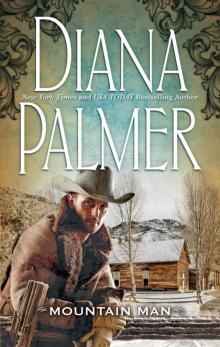 Mountain Man
Mountain Man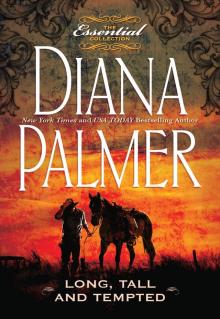 Long, Tall and Tempted
Long, Tall and Tempted A Love Like This
A Love Like This Miss Greenhorn
Miss Greenhorn Magnolia
Magnolia Lord of the Desert
Lord of the Desert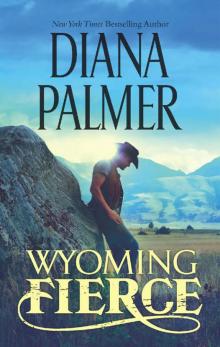 Wyoming Fierce
Wyoming Fierce True Colors
True Colors Calamity Mom
Calamity Mom The Pursuit
The Pursuit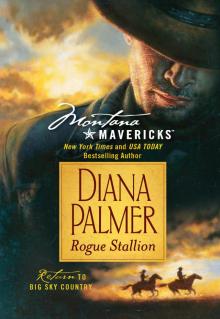 Rogue Stallion
Rogue Stallion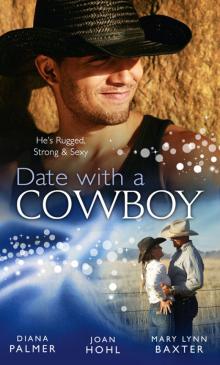 Date with a Cowboy
Date with a Cowboy Heart of Winter
Heart of Winter Friends and Lovers
Friends and Lovers Love on Trial
Love on Trial Boss Man
Boss Man Callaghan's Bride
Callaghan's Bride Before Sunrise
Before Sunrise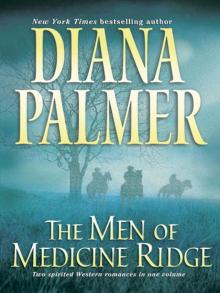 The Men of Medicine Ridge
The Men of Medicine Ridge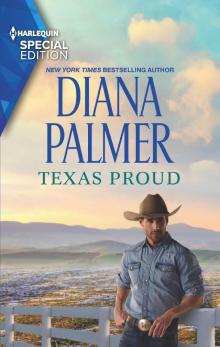 Texas Proud
Texas Proud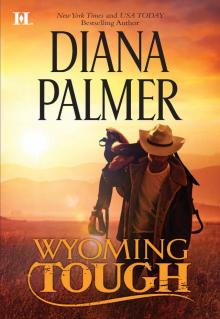 Wyoming Tough
Wyoming Tough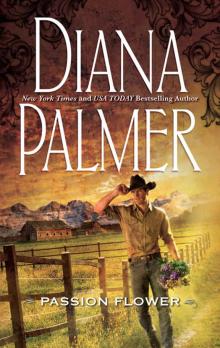 Passion Flower
Passion Flower Maggie's Dad
Maggie's Dad Donavan
Donavan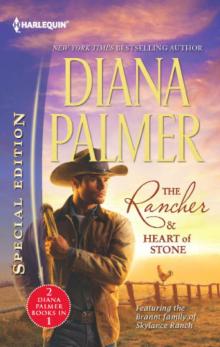 The Rancher & Heart of Stone
The Rancher & Heart of Stone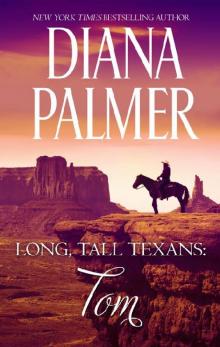 Long, Tall Texans: Tom
Long, Tall Texans: Tom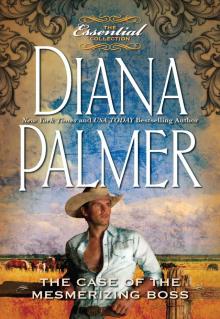 The Case of the Mesmerizing Boss
The Case of the Mesmerizing Boss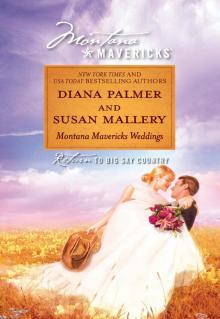 Montana Mavericks Weddings
Montana Mavericks Weddings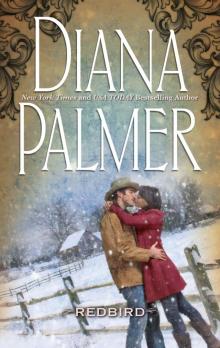 Redbird
Redbird Wyoming Strong
Wyoming Strong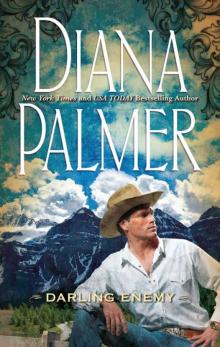 Darling Enemy
Darling Enemy Love by Proxy
Love by Proxy Coltrain's Proposal
Coltrain's Proposal The Best Is Yet to Come & Maternity Bride
The Best Is Yet to Come & Maternity Bride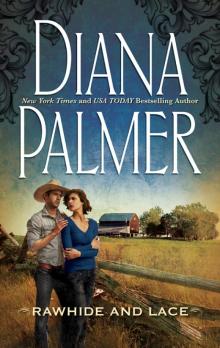 Rawhide and Lace
Rawhide and Lace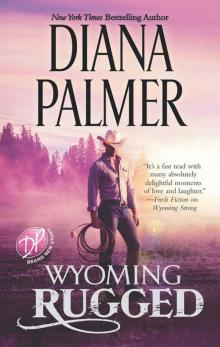 Wyoming Rugged
Wyoming Rugged Patient Nurse
Patient Nurse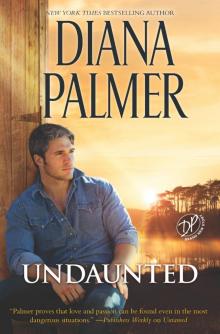 Undaunted
Undaunted Long Tall Texans Series Book 13 - Redbird
Long Tall Texans Series Book 13 - Redbird Outsider
Outsider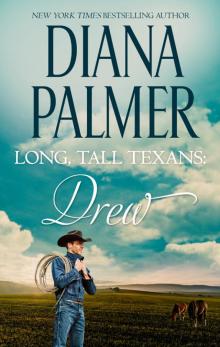 Long, Tall Texans: Drew
Long, Tall Texans: Drew Long, Tall Texans--Christopher
Long, Tall Texans--Christopher Merciless
Merciless A Match Made Under the Mistletoe
A Match Made Under the Mistletoe Evan
Evan Hunter
Hunter Now and Forever
Now and Forever Hard to Handle
Hard to Handle Amelia
Amelia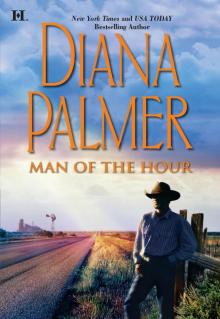 Man of the Hour
Man of the Hour Invincible
Invincible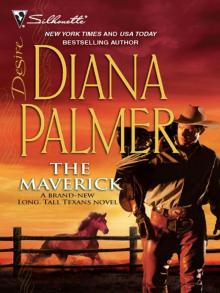 The Maverick
The Maverick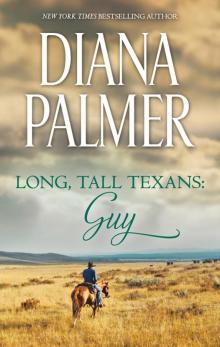 Long, Tall Texans--Guy
Long, Tall Texans--Guy Noelle
Noelle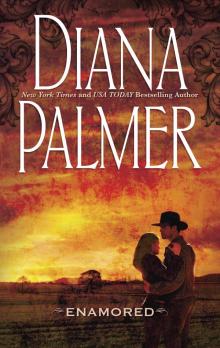 Enamored
Enamored The Best Is Yet to Come
The Best Is Yet to Come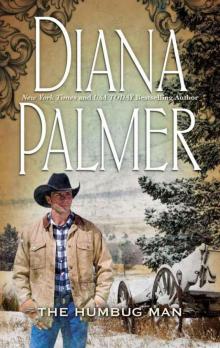 The Humbug Man
The Humbug Man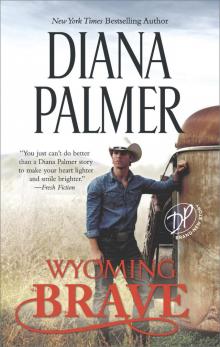 Wyoming Brave
Wyoming Brave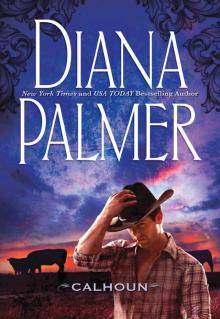 Calhoun
Calhoun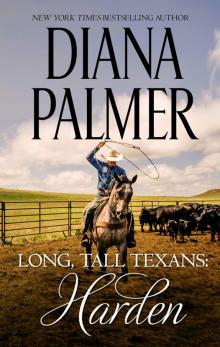 Long, Tall Texans--Harden
Long, Tall Texans--Harden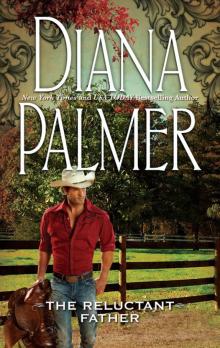 The Reluctant Father
The Reluctant Father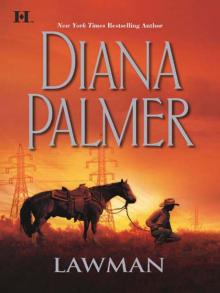 Lawman
Lawman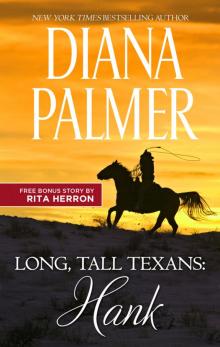 Long, Tall Texans: Hank & Ultimate Cowboy ; Long, Tall Texans: Hank
Long, Tall Texans: Hank & Ultimate Cowboy ; Long, Tall Texans: Hank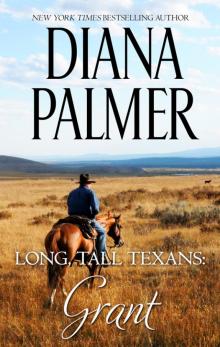 Grant
Grant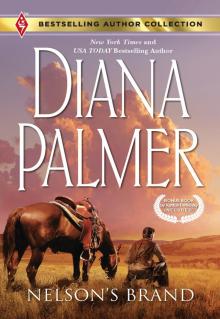 Nelson's Brand
Nelson's Brand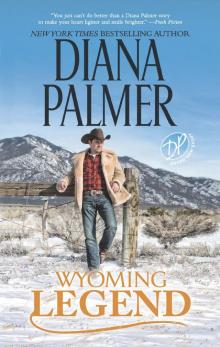 Wyoming Legend
Wyoming Legend Diamond Spur
Diamond Spur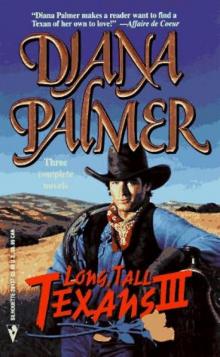 That Burke Man
That Burke Man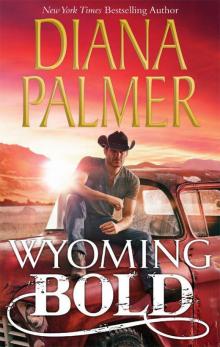 Wyoming Bold (Mills & Boon M&B)
Wyoming Bold (Mills & Boon M&B) Heartless
Heartless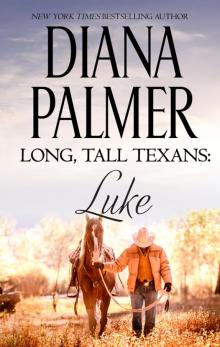 Long, Tall Texans--Luke
Long, Tall Texans--Luke To Have and to Hold
To Have and to Hold Once in Paris
Once in Paris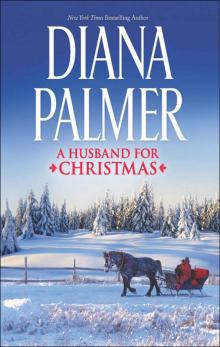 A Husband for Christmas: Snow KissesLionhearted
A Husband for Christmas: Snow KissesLionhearted Night Fever
Night Fever Beloved
Beloved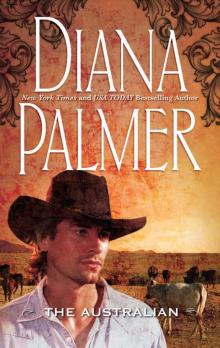 The Australian
The Australian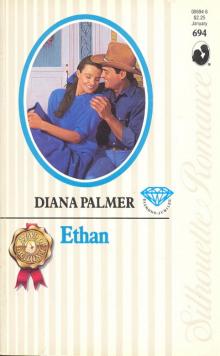 Ethan
Ethan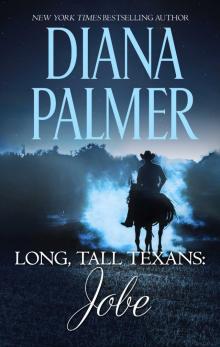 Long, Tall Texans: Jobe
Long, Tall Texans: Jobe Bound by Honor: Mercenary's WomanThe Winter Soldier
Bound by Honor: Mercenary's WomanThe Winter Soldier Tender Stranger
Tender Stranger After Midnight
After Midnight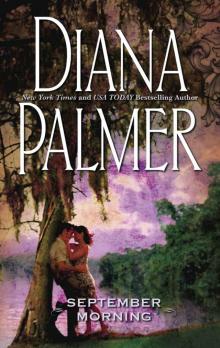 September Morning
September Morning To Wear His Ring
To Wear His Ring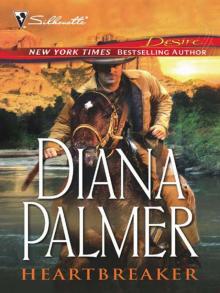 Heartbreaker
Heartbreaker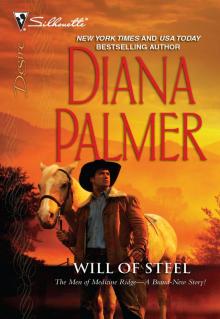 Will of Steel
Will of Steel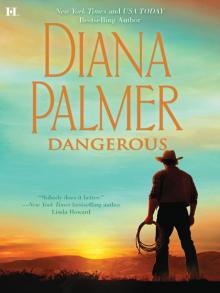 Dangerous
Dangerous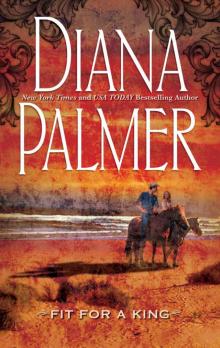 Fit for a King
Fit for a King Diamond in the Rough
Diamond in the Rough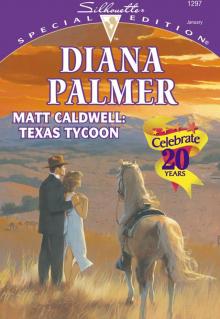 Matt Caldwell: Texas Tycoon
Matt Caldwell: Texas Tycoon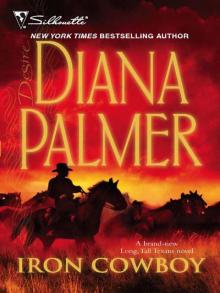 Iron Cowboy
Iron Cowboy Fire And Ice
Fire And Ice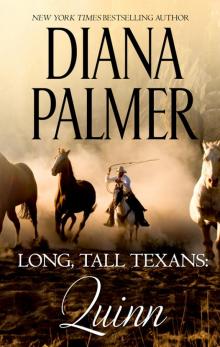 Long, Tall Texans--Quinn--A Single Dad Western Romance
Long, Tall Texans--Quinn--A Single Dad Western Romance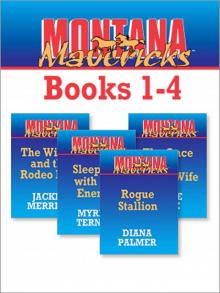 Montana Mavericks, Books 1-4
Montana Mavericks, Books 1-4 Denim and Lace
Denim and Lace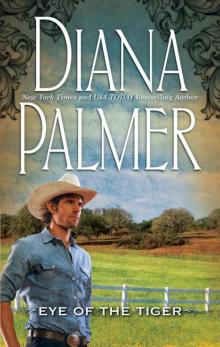 Eye of the Tiger
Eye of the Tiger The Princess Bride
The Princess Bride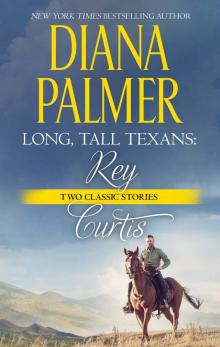 Long, Tall Texans: Rey ; Long, Tall Texans: Curtis ; A Man of Means ; Garden Cop
Long, Tall Texans: Rey ; Long, Tall Texans: Curtis ; A Man of Means ; Garden Cop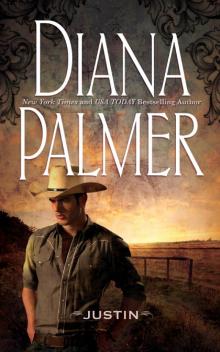 Justin
Justin Nora
Nora The Morcai Battalion
The Morcai Battalion Heart of Stone
Heart of Stone The Morcai Battalion: The Recruit
The Morcai Battalion: The Recruit To Love and Cherish
To Love and Cherish Invictus
Invictus Regan's Pride
Regan's Pride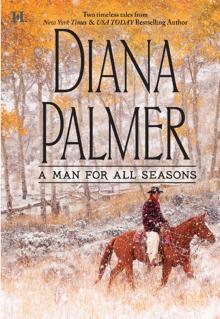 A Man for All Seasons
A Man for All Seasons Sweet Enemy
Sweet Enemy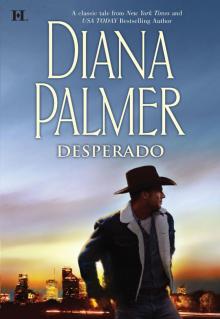 Desperado
Desperado Lacy
Lacy The Winter Man
The Winter Man Diamond Girl
Diamond Girl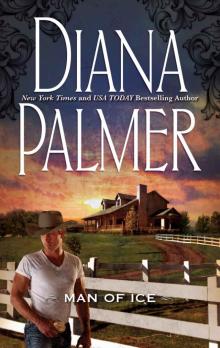 Man of Ice
Man of Ice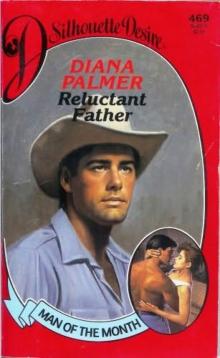 Reluctant Father
Reluctant Father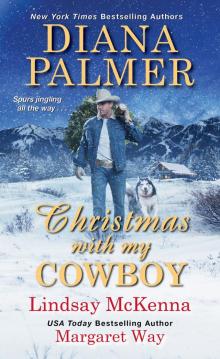 Christmas with My Cowboy
Christmas with My Cowboy Love with a Long, Tall Texan
Love with a Long, Tall Texan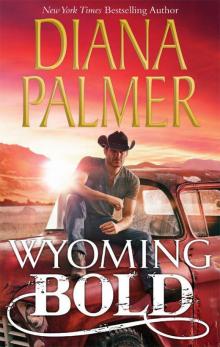 Wyoming Bold wm-3
Wyoming Bold wm-3 King's Ransom
King's Ransom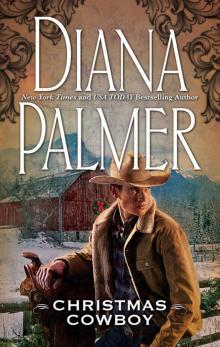 Christmas Cowboy
Christmas Cowboy Heart of Ice
Heart of Ice Fearless
Fearless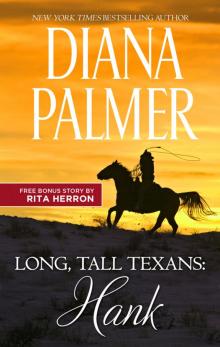 Long, Tall Texans_Hank
Long, Tall Texans_Hank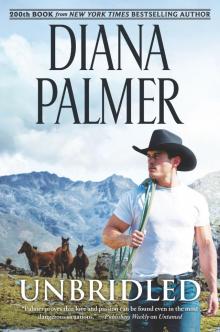 Unbridled
Unbridled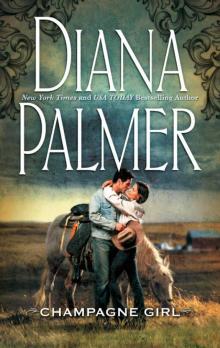 Champagne Girl
Champagne Girl The Greatest Gift
The Greatest Gift Storm Over the Lake
Storm Over the Lake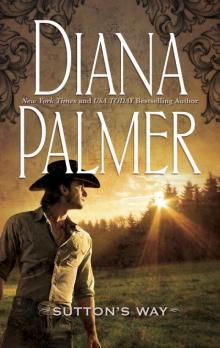 Sutton's Way
Sutton's Way Lionhearted
Lionhearted Renegade
Renegade Betrayed by Love
Betrayed by Love Dream's End
Dream's End All That Glitters
All That Glitters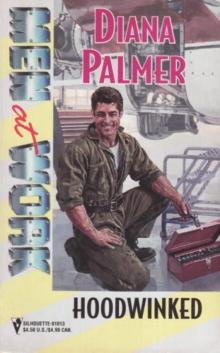 Hoodwinked
Hoodwinked Soldier of Fortune
Soldier of Fortune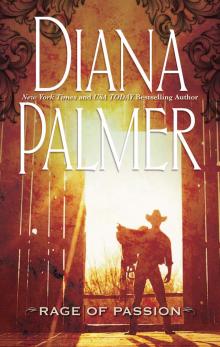 Rage of Passion
Rage of Passion Winter Roses
Winter Roses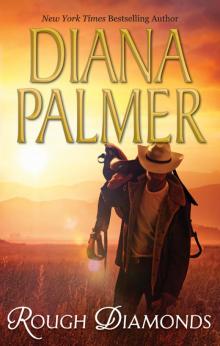 Rough Diamonds: Wyoming ToughDiamond in the Rough
Rough Diamonds: Wyoming ToughDiamond in the Rough Protector
Protector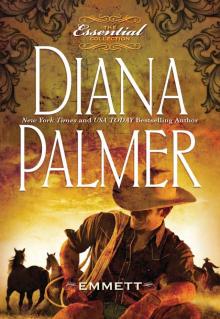 Emmett
Emmett True Blue
True Blue The Tender Stranger
The Tender Stranger Lone Star Winter
Lone Star Winter Man in Control
Man in Control The Rawhide Man
The Rawhide Man Untamed
Untamed Midnight Rider
Midnight Rider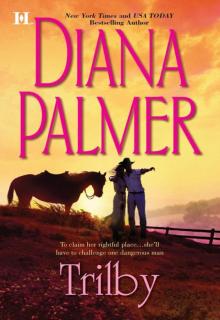 Trilby
Trilby A Long Tall Texan Summer
A Long Tall Texan Summer Tangled Destinies
Tangled Destinies LovePlay
LovePlay Blind Promises
Blind Promises Carrera's Bride
Carrera's Bride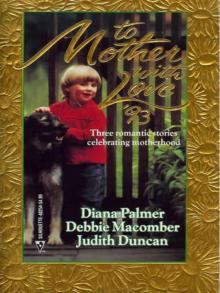 Calamity Mum
Calamity Mum Long, Tall Texan Legacy
Long, Tall Texan Legacy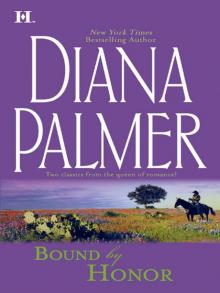 Bound by Honor
Bound by Honor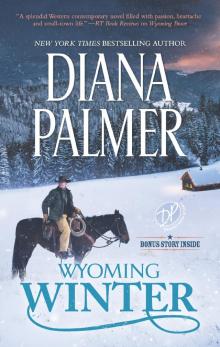 Wyoming Winter--A Small-Town Christmas Romance
Wyoming Winter--A Small-Town Christmas Romance Mystery Man
Mystery Man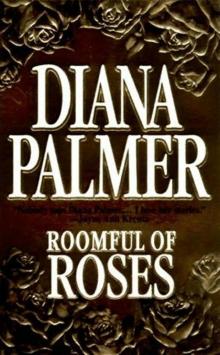 Roomful of Roses
Roomful of Roses Defender
Defender Bound by a Promise
Bound by a Promise Paper Rose
Paper Rose If Winter Comes
If Winter Comes Circle of Gold
Circle of Gold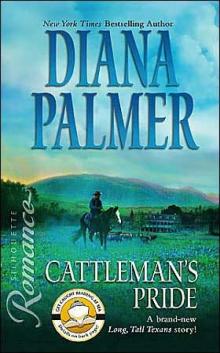 Cattleman's Pride
Cattleman's Pride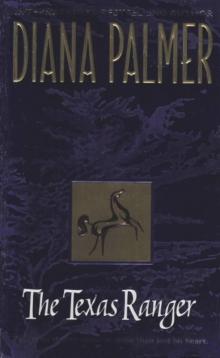 The Texas Ranger
The Texas Ranger Lady Love
Lady Love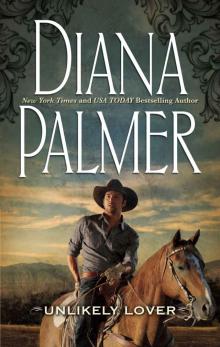 Unlikely Lover
Unlikely Lover A Man of Means
A Man of Means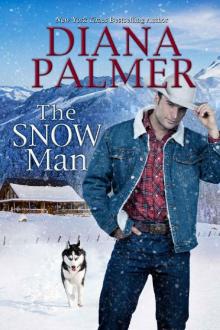 The Snow Man
The Snow Man The Case of the Missing Secretary
The Case of the Missing Secretary Harden
Harden Tough to Tame
Tough to Tame The Savage Heart
The Savage Heart